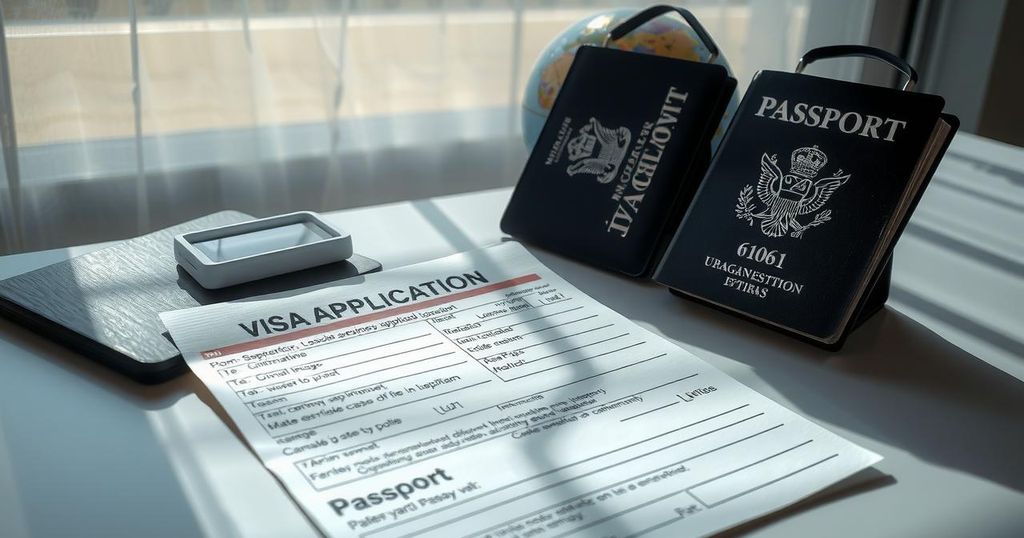The U.S. Embassy in Colombia canceled hundreds of visa appointments due to President Petro’s refusal to accept deportation flights for Colombian citizens. This dispute arose after President Trump threatened tariffs on Colombian imports. Many visa applicants were left frustrated by the abrupt cancellations, emphasizing the broader diplomatic tensions regarding immigration policies between the two nations.
In a recent dispute between the United States and Colombia, hundreds of U.S. visa appointments were abruptly canceled due to Colombian President Gustavo Petro’s refusal to accept repatriation flights for deported Colombian nationals. This occurred shortly after President Trump threatened significant tariffs on Colombian imports. As a consequence, dozens of Colombians arrived at the U.S. Embassy in Bogotá only to find their appointments canceled, creating frustration among those who had traveled long distances to secure a visa.
On January 27, 2025, U.S. consular officials notified applicants that their scheduled visa submissions were canceled because of their government’s stance on deportation flights. Despite the cancellation, Colombia’s Foreign Affairs Ministry later stated it would send an Air Force plane to pick up Colombians from a deportation flight that had previously been denied entry. This situation highlights escalating tensions between the two nations, particularly under the Trump administration’s stricter immigration policies.
State Department spokesperson Tammy Bruce commented that actions will be taken against nations that fail to comply with their agreements on accepting deportees, emphasizing that countries must abide by their commitments. With Colombians typically facing long waits for visa appointments, the cancellation holds significant inconvenience, generating additional waiting times and disappointment for applicants.
While expressing discontent, visa applicants voiced their frustrations, with Elio Camelo stating, “President Petro did not represent our interests.” The diplomatic spat intensified after President Petro publicly announced his refusal to allow U.S. Air Force planes carrying deportees to land, underscoring the rift between the two countries.
In response, President Trump proposed 25% emergency tariffs and hinted at revoking Colombian officials’ visas. However, negotiations resumed later that day, leading to an agreement that allowed deportation flights to restart. The White House indicated that previous arrangements were acknowledged and the added tariffs were suspended, although visa restrictions remained until deportations occurred.
The recent tensions between the United States and Colombia stemmed primarily from immigration policies and the management of deportation flights. The U.S. has maintained stringent immigration laws, often resulting in deportations of undocumented immigrants, including Colombian nationals. Colombia’s refusal to accept deportees, as vocalized by President Petro, sparked a significant reaction from the Trump administration, which is known for its tough stance on immigration and trade issues. The incident demonstrates how diplomatic relations can quickly become strained over immigration matters and highlights Colombia’s complicated position as a former ally in the U.S. war on drugs. Additionally, this situation illustrates the broader geopolitical implications of unilateral immigration policies and their impact on international relations.
The cancellation of U.S. visa appointments in Colombia is a direct consequence of a diplomatic dispute over deportation flights between the two countries. The situation reveals the complexity of international relations tied to immigration policy, particularly under the Trump administration’s approach. While negotiations led to a temporary resolution, the issue underscores the challenges faced by Colombians seeking visas amid ongoing tensions. Moving forward, it remains crucial for both nations to navigate this matter carefully to maintain their longstanding partnership.
Original Source: apnews.com






